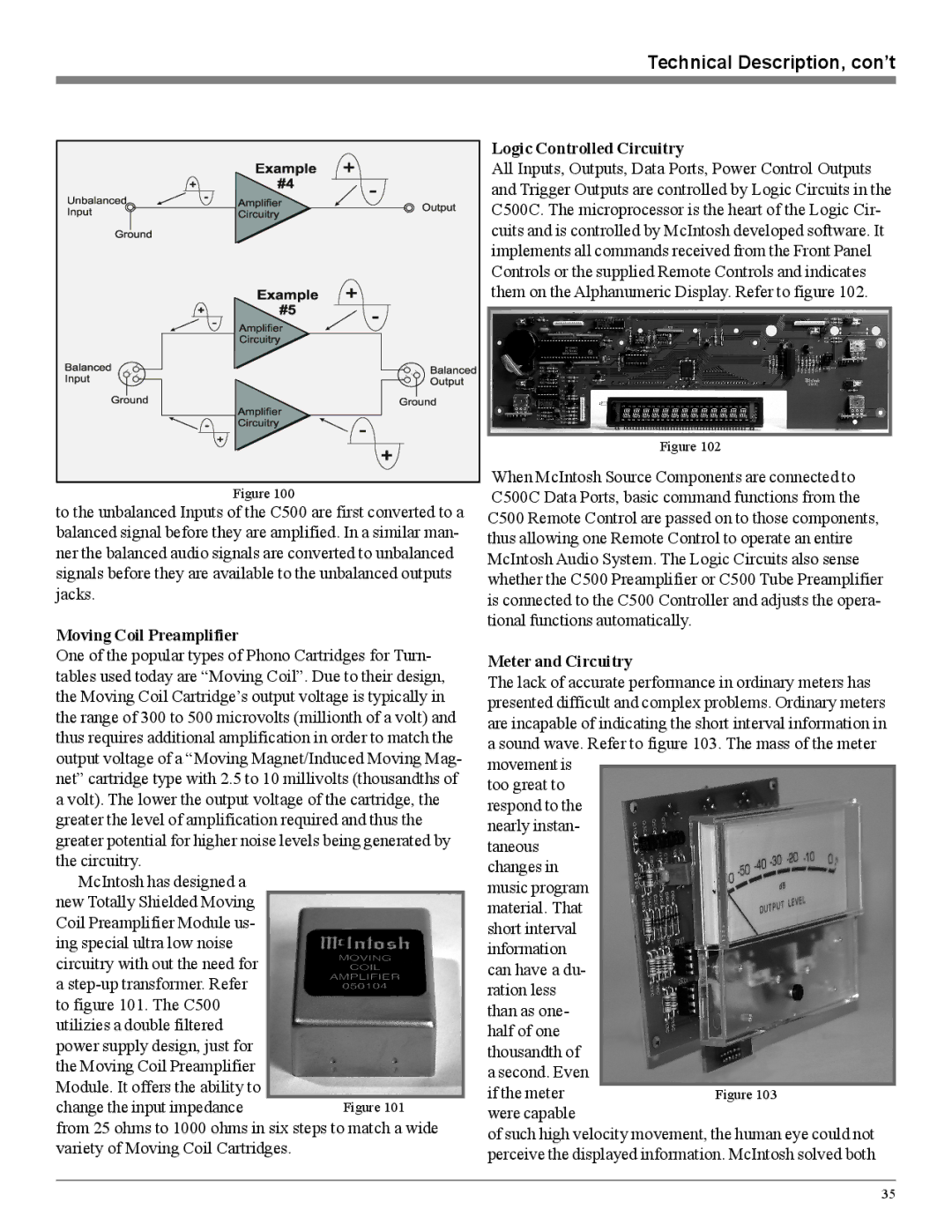
Technical Description, con’t
Figure 100
to the unbalanced Inputs of the C500 are first converted to a balanced signal before they are amplified. In a similar man- ner the balanced audio signals are converted to unbalanced signals before they are available to the unbalanced outputs jacks.
Moving Coil Preamplifier
One of the popular types of Phono Cartridges for Turn- tables used today are “Moving Coil”. Due to their design, the Moving Coil Cartridge’s output voltage is typically in the range of 300 to 500 microvolts (millionth of a volt) and thus requires additional amplification in order to match the output voltage of a “Moving Magnet/Induced Moving Mag- net” cartridge type with 2.5 to 10 millivolts (thousandths of a volt). The lower the output voltage of the cartridge, the greater the level of amplification required and thus the greater potential for higher noise levels being generated by the circuitry.
McIntosh has designed a new Totally Shielded Moving Coil Preamplifier Module us- ing special ultra low noise circuitry with out the need for a
change the input impedanceFigure 101 from 25 ohms to 1000 ohms in six steps to match a wide variety of Moving Coil Cartridges.
Logic Controlled Circuitry
All Inputs, Outputs, Data Ports, Power Control Outputs and Trigger Outputs are controlled by Logic Circuits in the C500C. The microprocessor is the heart of the Logic Cir- cuits and is controlled by McIntosh developed software. It implements all commands received from the Front Panel Controls or the supplied Remote Controls and indicates them on the Alphanumeric Display. Refer to figure 102.
Figure 102
When McIntosh Source Components are connected to C500C Data Ports, basic command functions from the C500 Remote Control are passed on to those components, thus allowing one Remote Control to operate an entire McIntosh Audio System. The Logic Circuits also sense whether the C500 Preamplifier or C500 Tube Preamplifier is connected to the C500 Controller and adjusts the opera- tional functions automatically.
Meter and Circuitry
The lack of accurate performance in ordinary meters has presented difficult and complex problems. Ordinary meters are incapable of indicating the short interval information in a sound wave. Refer to figure 103. The mass of the meter movement is
too great to respond to the nearly instan- taneous changes in music program material. That short interval information can have a du- ration less than as one- half of one thousandth of a second. Even if the meter were capable
of such high velocity movement, the human eye could not perceive the displayed information. McIntosh solved both
35
